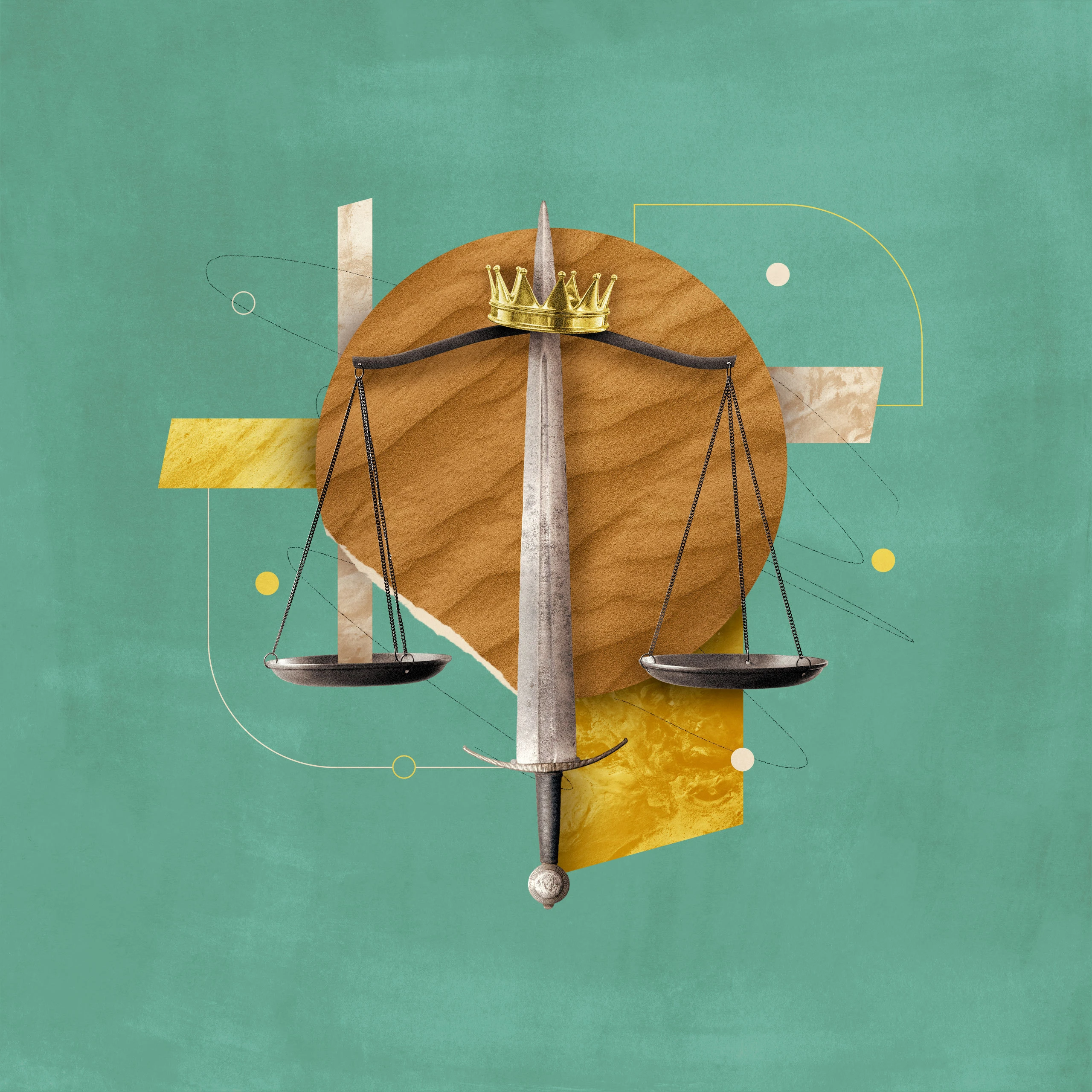3 Things You Should Know About Judges

In the book of Judges, there are two introductions (Judg. 1:1–2:5; 2:6–3:6), two conclusions (Judg. 17:1–18:31; 19:1–21:25), the accounts of twelve judges (six major judges and six minor judges), and the account of one anti-judge, Abimelech (Judg. 9:1–57). It is a sophisticated literary work that records a period in Israel’s history from the death of Joshua the son of Nun (Judg. 1:1; 2:8) to a time before the advent of the Israelite monarchy. Theologically, the book of Judges recounts Israel’s progressive decline into covenantal infidelity by way of idolatry in the context of the Lord’s steadfast faithfulness to this same covenantal arrangement. Here are three things you should know when you read the book of Judges.
1. The judges in the book of Judges are types of Christ.
The judges were raised up by the Lord and enabled by the Spirit to deliver God’s people, secure rest in the land, and promote obedience to the covenant (Judg. 2:16–19). Modern interpreters commonly view the judges as morally corrupt individuals engaging in the depravity of their time. This, however, is not the view of the New Testament or early interpretations of the book.
Consider the assessment in the book of Hebrews. Gideon, Barak, Samson, and Jephthah (some of the so-called worst offenders), along with David and Samuel, are described as men “who through faith conquered kingdoms, enforced justice, obtained promises, stopped the mouths of lions, quenched the power of fire, escaped the edge of the sword, were made strong out of weakness, became mighty in war, put foreign armies to flight” (Heb. 11:33–34). The commendation of these faithful servants continues through verse 40, and they are further described as people “of whom the world was not worthy” (Heb. 11:38).
This accords well with one of the earliest known historical assessments of the judges. Ben Sira, writes, “The Judges too, each when he was called, all men whose hearts were never disloyal, who never turned their backs on the Lord—may their memory be blessed! May their bones flourish again from the tomb, and may the names of those illustrious men be worthily borne by their sons” (Sir. 46:11–12).
As you encounter the judge narratives, remember that they were written for instruction (Rom. 15:4) in order that we might fix our eyes on Jesus (Heb. 12:2), who like Samson was raised up by His Lord to lay down His life in order to deliver God’s people (Judg. 16:30).
2. The structure of Judges is theological, not chronological.
As you read the book of Judges, you will encounter at least three different sets of numbers: the years of enemy oppression, the years the land experienced rest from oppression, and the years during which a judge served. For example, the Lord raised up Ehud after eighteen years of oppression by Eglon the king of Moab (Judg. 3:14–15) and afterward the land had rest for eighty years (Judg. 3:30). Similarly, it is recorded twice that Samson judged Israel for twenty years (Judg. 15:20; 16:31).
Some interpreters have tried to deduce the duration of the period of the judges by adding up all the numbers. However, some of the narratives overlap, and there are gaps in the periods of time covered. The judges were mostly local deliverers, not delivering all Israel at any given point. Additionally, in the first of two conclusions to the book, Jonathan the grandson of Moses is installed as an illicit priest in Dan (Judg. 18:30). This would have occurred early in the period of the judges, not at the end. As such, the structure of the book is theological, not chronological.
The dual introductions and conclusions mirror each other. The first introduction and second conclusion mirror one another and chronicle the crisis of Israel’s inheritance, specifically Israel’s failure to possess the land (Judg. 1:1–2:5) and the almost total extinction of the tribe of Benjamin due to their Sodom-like sin (Judg. 19:1–21:25). The second introduction and the first conclusion also mirror one another and chronicle the crisis of Israel’s faith, which was expressed in their incessant idolatry, providing the reason for their inability to possess the land and their moral corruption (Judg. 2:6–3:6; 17:1–18:31).
Sandwiched between these introductions and conclusions we encounter the judge narratives. The six major judges are grouped in two sets of three: Othniel, Ehud, and Deborah/Barak and then Gideon, Jephthah, and Samson. The so-called minor judges are very brief accounts (three verses or less) and lack most of the formulaic elements contained in the major judges. The minor judges are included to achieve the number twelve, corresponding to the number of the tribes of Israel. They are positioned and grouped to identify climactic major judge accounts. Shamgar marks the Deborah/Barak account as the first climactic judge narrative. Then Tola and Jair mark Jephthah’s account. Finally, Ibzan, Elon, and Abdon mark Samson as the last and most climactic judge narrative.
As the accounts of the major judges progress, so does Israel’s corruption. The cost of the judges’ deliverance also increases, as the last judge must give up his life in order to defeat the enemy (Judg. 16:30).
3. The book of Judges prepares the way for Israel’s monarchy.
It is commonly recognized that the four identical statements in the conclusions to the book anticipate Israel’s monarchy: “In those days there was no king in Israel” (Judg. 17:6; 18:1; 19:1; 21:25). Two of these statements are followed by a description of the nature of this time: “Everyone did what was right in their own eyes” (Judg. 17:6; 21:25). Israel needed a king who knew God’s law, obeyed that law, and led the people in that same obedience (see Deut. 17:14–20).
The book of Judges also prepares us in unexpected ways for the unfolding of the monarchy that would come with the arrival of Israel’s first two kings, Saul and David. Running through the book of Judges is a pro-Judah (David) and anti-Benjamin (Saul) polemic. For example, in the first chapter of the book, there are nineteen verses dedicated to the account of Judah’s relatively successful occupation of their territory (Judg. 1:2–20). This account is followed immediately by a single verse recording Benjamin’s failure to fully occupy their territory and their continued dwelling with Canaanites: “But the people of Benjamin did not drive out the Jebusites who lived in Jerusalem, so the Jebusites have lived with the people of Benjamin in Jerusalem to this day” (Judg. 1:21). And then finally, in Judges 19, the Benjaminites in Gibeah commit the sin of Sodom (Gen. 19) and the whole tribe is put under the ban of complete destruction (Judg. 20–21). As such, when Israel asks for a king like all the other nations (1 Sam. 8:5), the Lord gives them exactly what they ask for, Saul, from the city of Gibeah in the tribe of Benjamin. A foreboding selection to be sure, since Saul so tragically fails in his role as king.


